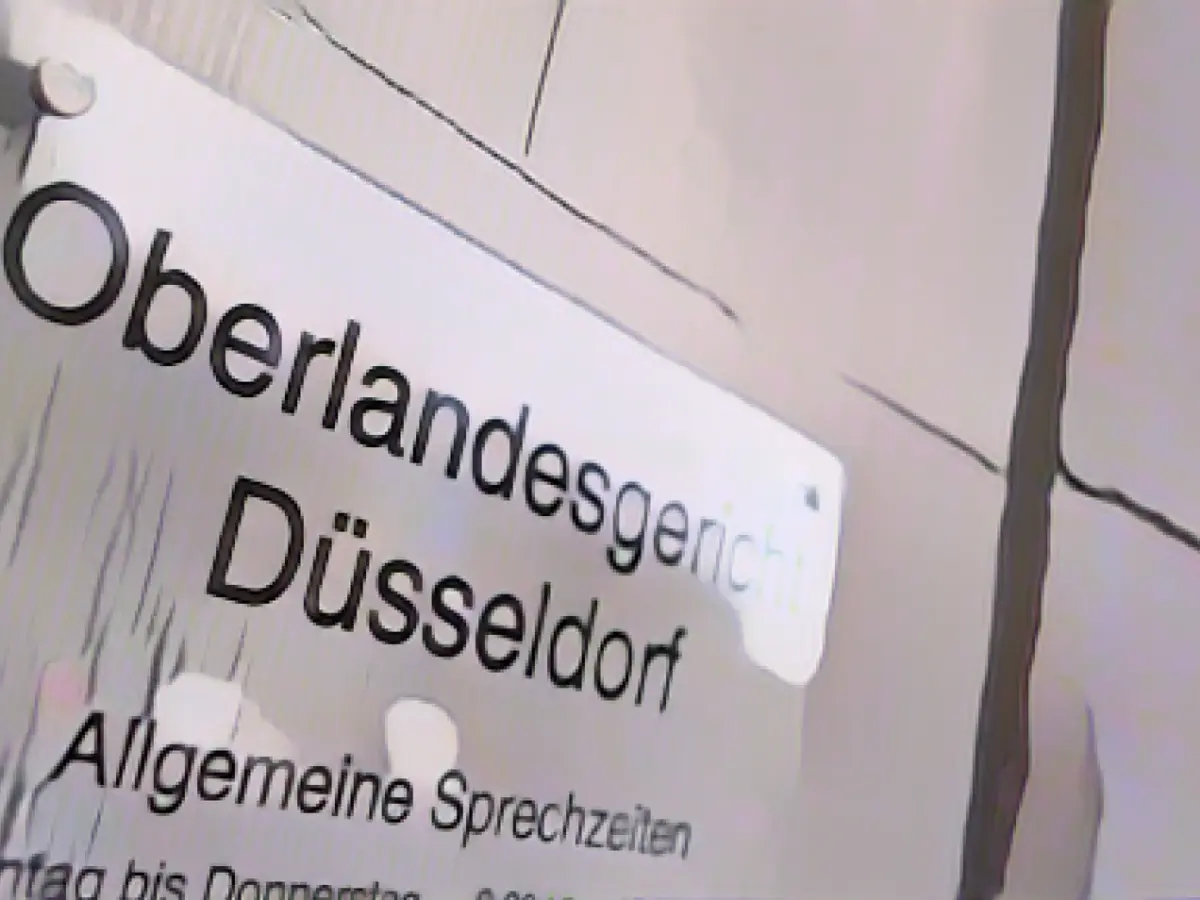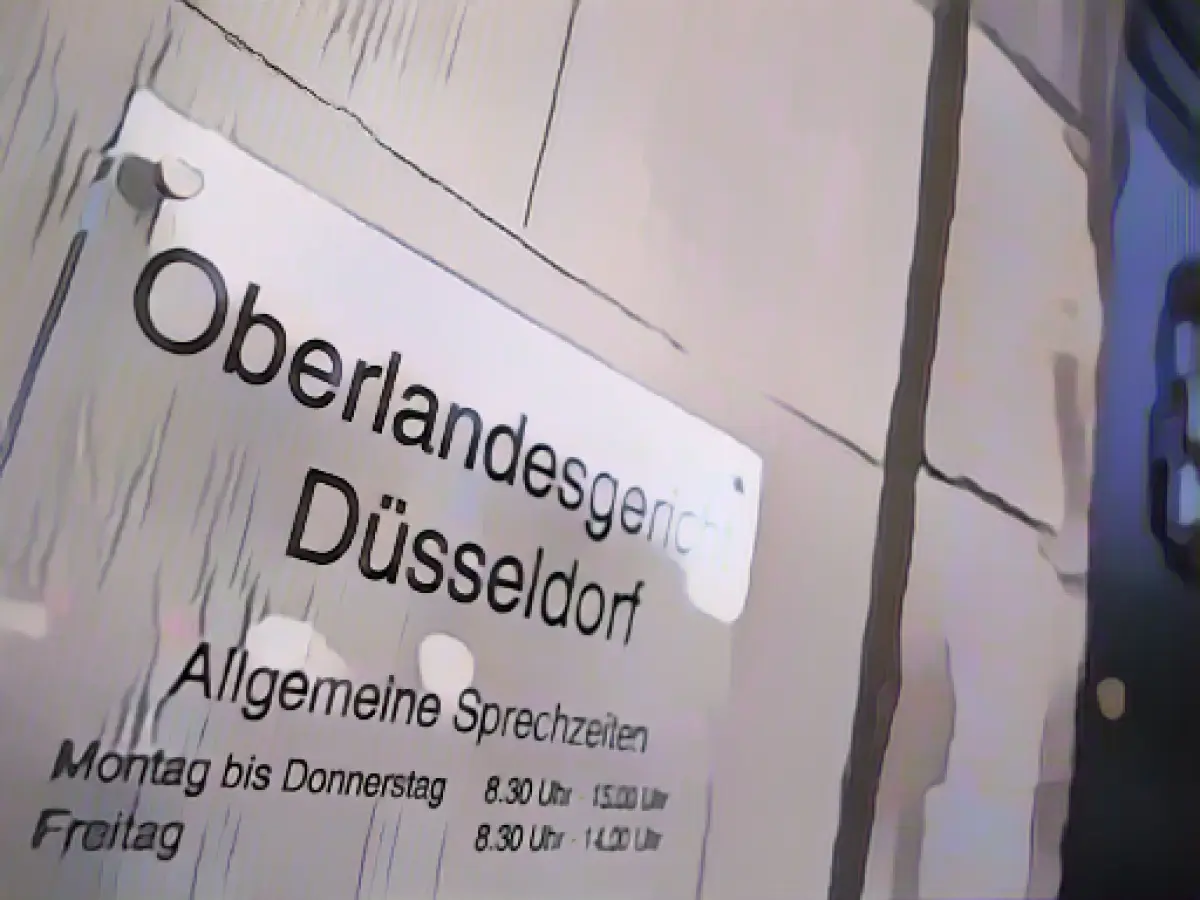Confectionery Cartel Dispute: Bahlsen Fined for Information Exchange
The long-standing legal dispute surrounding a confectionery manufacturer cartel seems to have reached its end. On Tuesday, the Düsseldorf Higher Regional Court handed down a verdict, mandating famed butter cookie maker Bahlsen (Leibniz Butterkeks) to pay approximately 3.56 million euros for sharing information in violation of antitrust laws. Griesson de Beukelaer, with brands like "Prinzen Rolle" under its belt, has been ordered to pay 2.25 million euros, and CFP Brands (Ricola) is required to cough up 0.45 million euros.
Initial penalties for all involved were expected to be higher, but the companies had previously negotiated with the court, resulting in reduced allegations and milder assessments of their actions. The court further noted food retailers' strong market power in opposition to the manufacturers in its ruling.
The issue at hand stemmed from sharing information about negotiating statuses with food retailers, between 2006 and 2008, among manufacturers as part of an industry working group. The court deemed the events distant enough in the past, foregoing further evidence review.
In 2013, the Federal Cartel Office issued fines to eleven confectionery manufacturers for various transgressions. Some companies contested the decisions, setting off a court dispute that has now reached its conclusion against the last three affected parties (case reference V-6 Kart 9/19 OWi). Despite the judgment being non-binding at the moment, an appeal seems unlikely given the preliminary agreement between the parties.
The agreement was reached with Griesson de Beukelaer and CFP Brands during the initial proceedings. However, negotiations with Bahlsen were not complete until mid-November. The presiding judge, Ulrich Egger, subsequently agreed to separate and prolong the Bahlsen proceedings, but further discussions ultimately led to an agreement. The court proceedings now conclude after four main hearing days—significantly earlier than initially planned.
A Bahlsen spokeswoman commented on the accusations of alleged price fixing, asserting, "The reasoning behind the fine stems from the exchange of information within the confectionery industry, which mostly safeguarded against predominantly unlawful special demands from food retailers."
A CFP Brands representative shared that after a Düsseldorf Higher Regional Court ruling in 2017, the original five million euro fine had dropped to five hundred thousand euros following an appeal to the Federal Court of Justice. Subsequent proceedings led to the lower penalty of less than a tenth of the original amount, which the company agreed to end the lengthy and expensive process. Griesson de Beukelaer did not wish to comment.
Industry experts have welcomed the conclusion of the legal dispute, with Düsseldorf-based antitrust lawyer Johann Brück stating, "This is the best solution for all parties involved. Who could have produced memories that were not already on record? The proceedings would have become a pure farce."
Also see:
- Bahlsen, renowned for Leibniz Butterkeks, has been ordered to pay approximately 3.56 million euros in fines by the Higher Regional Court of Düsseldorf for antitrust law violations in the confectionery industry cartel.
- Initially, proposed fines for all parties involved were greater, but prior negotiations with the court led to reduced allegations and milder assessments of the companies’ past activities.
- The dispute boiled down to the exchange of information about negotiations with food retailers between 2006 and 2008 within an industry working group.
- The Federal Cartel Office originally imposed fines on eleven confectionery manufacturers in 2013, giving rise to court cases against the remaining three (Case Reference V-6 Kart 9/19 OWi).
- Griesson de Beukelaer and CFP Brands had reached an agreement with the court earlier in the proceedings, but Bahlsen negotiated separately and later joined the agreement.
- The Higher Regional Court’s ruling noted that food retailers had strong market power in opposition to the manufacturers.
- Many industry experts hail the conclusion of the legal dispute, acknowledging the extensive time that has elapsed and the potential for the proceedings to become a farce if founded on insufficient evidence.
Source:
Insights:
Antitrust laws identify three primary scenarios in which information exchange among competitors occurs: facilitating a cartel, enhancing efficiency through cooperation, or serving as a standalone practice [OECD and EU Competition Rules]. In the first scenario, the information enables firms to implement or monitor cartels, which is considered anticompetitive [OECD and EU Competition Rules]. In the second scenario, the information exchange can lead to economic benefits through cost savings, risk sharing, or investing in better product quality and variety.
Standalone information exchanges are assessed under the "rule of reason," with no criminal effects unless they show superior compensatory effects. Exchange of current price information has the most significant potential for generating anticompetitive impacts [US Antitrust Law]. The Federal Cartel Office in Germany has been actively enforcing antitrust laws, imposing fines for practices like bid rigging and vertical price fixing. For example, Strabag AG and AVM were each fined €2.79 million and €16 million, respectively [Recent Antitrust Enforcement].
Enrichment Data Source(s): , ,






